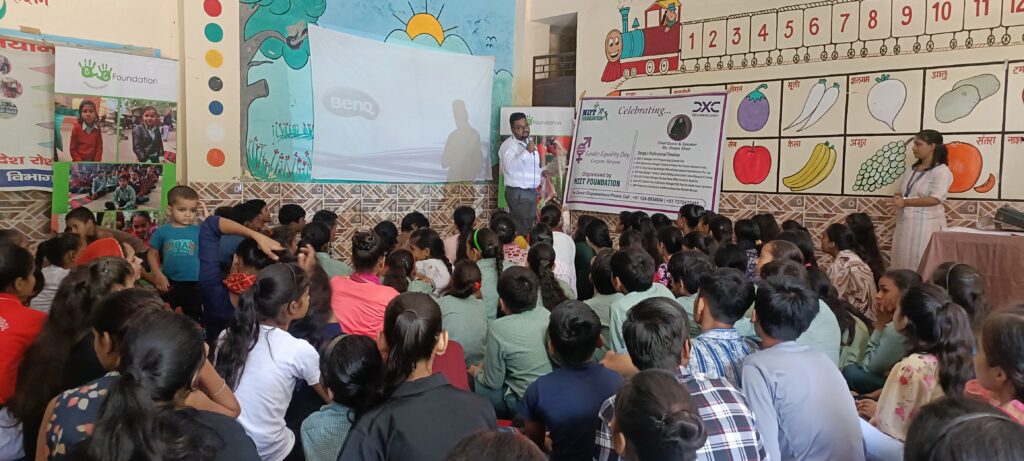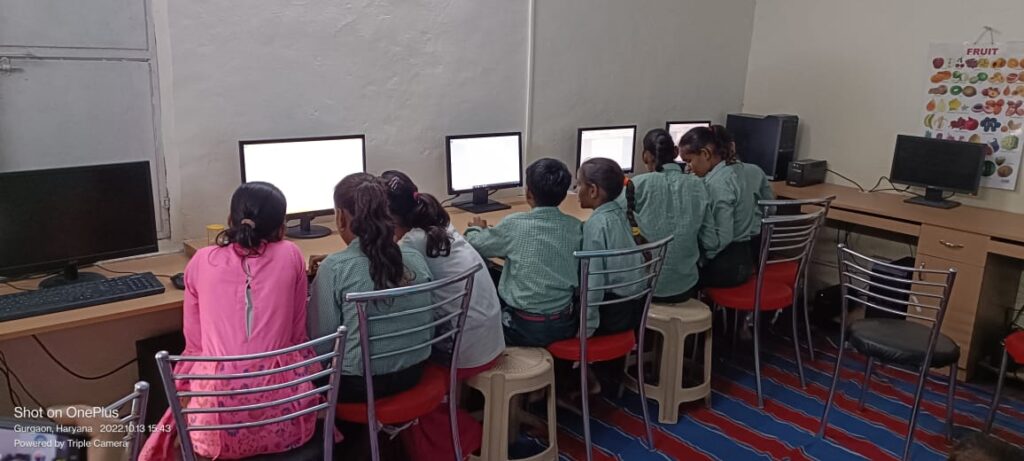Empowering underprivileged youth is of utmost importance in today’s society. These young individuals often face numerous challenges that hinder their personal growth and limit their opportunities for success. By providing them with the necessary support and resources, we can help them overcome these obstacles and unlock their full potential. Empowering underprivileged youth not only benefits them individually but also has a positive impact on society as a whole.
When we empower underprivileged youth, we are investing in the future of our communities. These young individuals have unique talents and perspectives that, if nurtured and developed, can contribute to the betterment of society. By providing them with the tools they need to succeed, we are creating a more inclusive and equitable society where everyone has an equal chance to thrive.
Understanding the Challenges Faced by Underprivileged Youth

Underprivileged youth face a myriad of challenges that significantly impact their lives and future prospects. Poverty is one of the most prevalent challenges they face, as it limits their access to basic necessities such as food, shelter, and healthcare. Growing up in poverty can have long-lasting effects on their physical and mental well-being, making it difficult for them to break free from the cycle of poverty.
Lack of access to education is another major challenge faced by underprivileged youth. Without proper education, these young individuals are denied the opportunity to acquire essential knowledge and skills that are crucial for their personal and professional development. This lack of education further perpetuates the cycle of poverty and limits their chances of upward mobility.
Limited opportunities also pose a significant challenge for underprivileged youth. They often lack access to extracurricular activities, job opportunities, and mentorship programs that can help them explore their interests and develop valuable skills. This lack of opportunities further exacerbates the inequality they face and hinders their ability to reach their full potential.
The Role of Education in Empowering Underprivileged Youth

Education plays a crucial role in empowering underprivileged youth. It provides them with the knowledge and skills they need to succeed in life and break free from the cycle of poverty. By investing in quality education for underprivileged youth, we are equipping them with the tools they need to overcome the challenges they face and create a better future for themselves.
Education not only provides underprivileged youth with academic knowledge but also helps develop critical thinking, problem-solving, and communication skills. These skills are essential for their personal and professional growth and enable them to navigate the challenges they may encounter in life. Moreover, education instills a sense of empowerment and self-confidence in underprivileged youth, giving them the belief that they can achieve their goals and make a positive impact on society.
Building Confidence and Self-Esteem in Underprivileged Youth
Building confidence and self-esteem is crucial for empowering underprivileged youth. Many of these young individuals grow up in environments where they are constantly reminded of their limitations and face negative stereotypes. This can have a detrimental effect on their self-worth and hinder their ability to pursue their dreams.
By providing underprivileged youth with opportunities to build confidence and self-esteem, we can help them overcome these barriers and realize their full potential. This can be done through various means, such as mentorship programs, leadership training, and extracurricular activities. When underprivileged youth are given the chance to showcase their talents and abilities, they gain a sense of pride and belief in themselves, which propels them towards success.
Providing Access to Mentors and Role Models
Access to mentors and role models is essential for empowering underprivileged youth. These individuals can provide guidance, support, and inspiration to young people who may not have positive role models in their immediate environment. Mentors and role models can help underprivileged youth navigate challenges, set goals, and develop the necessary skills to achieve success.
Mentorship programs that pair underprivileged youth with successful individuals from similar backgrounds can be particularly impactful. These mentors can share their own experiences and provide valuable advice and support to help young people overcome obstacles and achieve their goals. By providing underprivileged youth with access to mentors and role models, we are giving them the opportunity to learn from those who have already succeeded, increasing their chances of success.
Creating Safe Spaces for Underprivileged Youth
Creating safe spaces for underprivileged youth is crucial for their empowerment. Many of these young individuals come from environments where they may face violence, abuse, or discrimination. By providing them with safe spaces, we are giving them a refuge where they can feel protected and supported.
Safe spaces can take various forms, such as community centers, after-school programs, or support groups. These spaces provide underprivileged youth with a sense of belonging and enable them to connect with others who may be facing similar challenges. In these safe spaces, they can receive emotional support, access resources, and develop valuable relationships that can help them overcome adversity.
Developing Life Skills and Career Readiness
Developing life skills and career readiness is essential for empowering underprivileged youth. These skills equip young individuals with the tools they need to navigate the challenges of adulthood and succeed in the workforce. By providing underprivileged youth with opportunities to develop these skills, we are preparing them for a brighter future.
Life skills such as communication, problem-solving, and time management are crucial for personal and professional success. By teaching underprivileged youth these skills, we are empowering them to make informed decisions, solve problems effectively, and manage their time efficiently. Additionally, career readiness programs that provide underprivileged youth with job training, internships, and mentorship opportunities can significantly increase their chances of finding meaningful employment.
Encouraging Community Involvement and Civic Engagement
Encouraging community involvement and civic engagement in underprivileged youth is vital for their empowerment. By actively participating in their communities, young individuals can develop a sense of belonging and ownership, which in turn fosters a sense of empowerment and agency.
Community involvement can take various forms, such as volunteering, participating in community projects, or joining youth-led initiatives. By engaging in these activities, underprivileged youth can develop leadership skills, build networks, and make a positive impact on their communities. Moreover, community involvement and civic engagement provide underprivileged youth with a platform to voice their concerns and advocate for change, further empowering them to create a better future.
Addressing Mental Health and Wellness Needs of Underprivileged Youth
Addressing the mental health and wellness needs of underprivileged youth is crucial for their overall well-being and empowerment. Many of these young individuals face significant stressors and traumas that can have a lasting impact on their mental health. By providing them with the necessary support and resources, we can help them overcome these challenges and thrive.
Access to mental health services is essential for underprivileged youth. By providing them with counseling, therapy, and other mental health interventions, we can help them develop coping mechanisms and resilience to navigate the challenges they face. Additionally, promoting wellness activities such as exercise, mindfulness, and self-care can contribute to their overall well-being and empower them to take control of their mental health.
Cultivating Resilience and Overcoming Adversity
Cultivating resilience and overcoming adversity is essential for empowering underprivileged youth. These young individuals often face numerous challenges that may seem insurmountable. By teaching them resilience skills and providing them with the necessary support, we can help them overcome these obstacles and thrive.
Resilience is the ability to bounce back from adversity and adapt to change. By teaching underprivileged youth resilience skills such as problem-solving, positive thinking, and emotional regulation, we are equipping them with the tools they need to navigate challenges and setbacks. Moreover, providing them with a supportive environment that encourages risk-taking and learning from failure can further foster their resilience and empower them to overcome adversity.
The Power of Empowering Underprivileged Youth for a Better Future
Empowering underprivileged youth is not only a moral imperative but also a strategic investment in the future of our society. By providing them with the necessary support and resources, we can help them overcome the challenges they face and unlock their full potential. Empowered underprivileged youth have the ability to make a positive impact on society, contribute to economic growth, and create a more equitable and inclusive future.
To empower underprivileged youth, we must address the various challenges they face, such as poverty, lack of access to education, limited opportunities, and mental health needs. By focusing on education, building confidence and self-esteem, providing access to mentors and role models, creating safe spaces, developing life skills and career readiness, encouraging community involvement and civic engagement, addressing mental health and wellness needs, and cultivating resilience, we can empower underprivileged youth to overcome adversity and achieve success.
It is essential for individuals, communities, and governments to take action and support initiatives that empower underprivileged youth. By investing in their education, providing mentorship opportunities, creating safe spaces, promoting community involvement, addressing mental health needs, and fostering resilience, we can create a better future for all. Together, we can empower underprivileged youth and build a more inclusive and equitable society.


